NHS England chief executive to give evidence on healthcare funding before Commons committee, plus the rest of today’s news and comment

5.16pm The session on healthcare funding has now come to a close.
4.39pm Another hint about what is in the Five Year Forward View. Simon Stevens says the document will “stray quite wide” into other sectors (for example housing) which impact on the nation’s health. He said we have been “too passive as a country” about the upstream problems which cause poor health, which then have to be addressed by the NHS downstream.
4.18pm Mr Stevens says more money should have been spent on primary care over the last decade.
4.15pm First reference to the Five Year Forward View, which is going to be published later this week. Simon Stevens said the document would set out how more should be invested “upstream” on obesity prevention measures and less “downstream” on bariatric surgery.
4.09pm Nick Renaud-Komiya at the meeting:
Richard Douglas says the speed to bring up to target allocations will depend on the spending review settlement. #pac
— Nick Renaud-Komiya (@NickRenKom) October 20, 2014
3.48pm Mr Stevens says he would like to make more progress towards the target allocations within the next year or two.
3.47pm Simon Stevens says there is more transparency than ever in the NHS around “soft bailouts” going to commissioners.
3.41pm HSJ’s Nick Renaud-Komiya:
Hodge to Stevens: you cannot sit here and tell us that 2/5ths of CCGs are above or below the target and do nothing #pac
— Nick Renaud-Komiya (@NickRenKom) October 20, 2014
3.37pm Simon Stevens says the tight financial envelope means it is difficult to move quickly towards the target allocations, because this would mean some CCGs would receive real terms cuts.
3.33pm Margaret Hodge is grilling Simon Stevens on the failure to “fairly resource” CCG allocations.
3.29pm The public accounts committee session is now underway.
2.30pm Simon Stevens is appearing before the Commons public accounts committee this afternoon to discuss healthcare funding.
The NHS England chief executive will be appearing alongside Una O’Brien, permanent secretary of the Department of Health, Richard Douglas, director general of NHS finance at the DH, and Paul Baumann, chief finance officer of NHS England. The session is due to get underway at 3.15pm.
HSJ’s Nick Renaud-Komiya will be live tweeting (@NickRenCom) from the committee, and you’ll also be able to follow it here on HSJ Live.
1.50pm In an attempt to help NHS providers avoid financial distress, Monitor has unveiled new resources intended to solve the problem of bad planning by providers.
To help providers and commissioners understand the new resources, Monitor head of sector development Suzie Bailey will be taking part in an online Q&A on hsj.co.uk at 12pm-1pm on 22 October.
Participants will be able to discuss the financial and clinical pitfalls of bad planning and how to avoid it.
You can find out more and pose your questions here.
1.30pm Tomorrow evening HSJ’s list of the top 100 Clinical Leaders will be announced.
The announcement will be at 7.30pm and you’ll be able to follow it at #hsjclinicalleaders.
Who will be in and out of that list tomorrow?
1.26pm NHS England has appointed Tony Young as new national clinical director for innovation.
As national clinical cirector, Professor Young’s role will provide clinical leadership and support in delivering improved health outcomes across the five domains of the NHS outcomes framework. In particular he will focus on generating economic growth through innovation and driving the uptake of proven innovations across the healthcare system.
Professor Young is a practicing consultant urological surgeon at Southend University Hospital and director of medical innovation at Anglia Ruskin University. He has been instrumental in bringing together the partnership that forms the Anglia Ruskin MedTech Campus, which is set to become one of the world’s largest health innovation spaces.
Professor Young said: “It’s an honour to be appointed to this role. We’ve made great strides in transforming the medical innovation process during my time at Anglia Ruskin. I look forward to working with clinicians to help make innovation happen and bring the latest advances in technology and improvements in care pathways. The challenges we face as a national health system, particularly in the management of chronic disease are piled high. By encouraging economic growth and becoming early adopters of the latest innovations, we can rise to the challenge and help transform patient care and experience. ”
Mike Bewick, deputy medical director for NHS England, said: “We are facing a challenging but exciting time in delivering health services that meet the needs of both current and future healthcare consumers. Tony will be a great asset in helping move this agenda forward and we are looking forward to him joining the team.”
Professor Young will remain in his post at Anglia Ruskin during his time on secondment to NHS England and also continue as a frontline clinician at Southend University Hospital.
1.19pm A new report by the think tank Demos urges the government to set up ‘all-in-one’ centres combining GPs with advisors to encourage migrants to seek health treatment despite concerns over their immigration status.
The report argues that encouraging earlier detection of health conditions amongst migrant communities would reduce NHS spending on treatment and reduce the wider public health risk by catching transmittable diseases early.
The ‘all-in-one’ centres would bring together frontline NHS staff with expert advisors from support agencies, such as Citizen’s Advice or the Mary Ward Legal Centre, who would confidentially be able to inform patients what they are eligible for, where they can access care and what charges they might incur.
The research, published today, builds on evidence from a Doctors of the World survey of 1,000 migrants – which found 90% have not registered with a general practitioner even though they were eligible to do so.
12.50pm Radiographers across the UK will strike on October 20 in the latest outbreak of industrial action against the government’s decision not to accept a recommended 1 per cent pay rise for all NHS staff.
Members of the Society of Radiographers across the UK will walk out for four hours from 9am and will work to rule for the rest of the week.
The action follows the first ever strike by midwives last week and comes ahead of a stoppage on Friday by prison officers in psychiatric hospitals including Broadmoor.
12.08pm Commenting on the Maternal Mental Health Alliance’s perinatal mental health report, Max Davie of the Royal College of Paediatrics and Child Health,said: “Not only do perinatal mental health problems result in a huge financial cost for the NHS, the human cost in terms of the health and wellbeing of children is striking. From pre-term births and the associated health risks, through to emotional problems, lower educational attainment and at its most extreme infant deaths, the impact is stark and the message from this report is all too clear: an investment in maternal mental health is also an investment in child health.”
11.53am Parts of the mental health service could be destabilised by the ‘cluster’ payment system proposed for the sector, the president of the Royal College of Psychiatrists has warned.
Sir Simon Wessely told HSJ he had “great concerns” about moves towards the cluster regime, which Monitor has proposed as part of its consultation on tariff payments.
11.51am The Times reports that western countries have undermined the fight against ebola by recruiting doctors and nurses from west Africa, leaving some areas with inadequate health expertise, charities have warned.
The NHS employs 679 health professional from Sierra Leone, and many more are believed to work in private practice and in care homes.
The total includes ten doctors, almost a tenth of the number working for Sierra Leone’s fragile health service.
Martin Drewry, director of the charity Health Poverty Action, said that by employing foreign health workers, Britain and other western countries had “without a doubt” contributed to the vulnerability of west African nations to infectious disease.
11.36am Also in The Guardian, an 86-year-old woman starved herself to death because she felt it was she only way could legally exercise her right to die. The case has reignited debate about voluntary euthanasia and government policy on assisted suicide.
Right-to-die campaigner Jean Davies died on 1 October, more than a month after she stopped eating and two weeks after she stopped drinking water.
11.13am Hospitals that blinker themselves to the potential of working with mental health providers will usher in their “own financial demise”, the NHS England official overseeing the service has warned.
In an exclusive with HSJ, NHS England director for long term conditions Martin McShane said acute trusts had to abandon their “fortress” attitude and “monocular vision” to work across organisational boundaries.
10.55am Public Health England has warned that increased alcohol consumption has led to a sharp rise in the number of people dying from liver disease, The Guardian reports.
10.52am The Guardian profiles Joanna Friend, wwho experienced depression and anxiety shortly after the birth of her first son.
Ms Friend was given tranquillisers and antidepressants, which prevented her from breastfeeding. She also spent a week on a psychiatric unit when she relapsed.
10.41am The Guardian leads on the story that the long term effects of substandard mental health for pregnant women and new mothers is costing the NHS more than £8bn a year, according to a study commissioned by the Maternal Mental Health Alliance.
The report, which was jointly produced by the London School of Economics and the Centre for Mental Health, found that only an estimated 40 per cent of maternal mental health problems are detected and only three per cent of women make a full recovery.
10.30am Elsewhere in the paper, writer Guy Adams, reports of the “depressingly routine” stories of those receiving poor NHS care in Wales, citing an example of his friend who died following what he describes as “awful” care to address his bowel cancer.
10.20am The Daily Mail reports the results of an investigation it has conducted into the state of the NHS in Labour-run Wales.
The paper reports that health campaigners have demanded a full-scale inquiry into what it describes as the ‘meltdown’ in the Welsh NHS.
The paper’s front page this morning features demands for an independent inquiry into Welsh NHS care from the British Medical Association, the Conservative party, Plaid Cymru, and Labour MP Ann Clwyd.
The Mail has said that in the coming days it will reveal further details into its investigations, including reports that police are investigating allegations of neglect of vulnerable patients in South Wales Hospitals. It will also report that families who have complained say medical records have been altered or have gone missing.
10.09am The Daily Telegraph reports that dying patients could be given access to untested medicines from early next year after the government and senior doctors gave their backing to a bill proposed by Lord Saatchi.
The Medical Innovation Bill has been backed by the health secretary and received tentative support from the General Medical Council, who earlier in the year came out against any change in the law.
9.39am GP engagement with clinical commissioning groups has slightly fallen with only half feeling they are involved in decision making, according to an NHS England commissioned survey.
Ipsos MORI was commissioned to carry out “360 degree stakeholder surveys” of the views of a range of partner organisations as well as CCGs’ member GP practices, for all the 211 groups.
7.00am Good morning and welcome to HSJ Live.
Dr Anushta Sivananthan, medical director of Cheshire and Wirral Partnership Foundation Trust, sets out how the trust is responding to new patient safety challenges to mental health services following the Francis, Keogh and Berwick reports, plus the rest of today’s news and comment




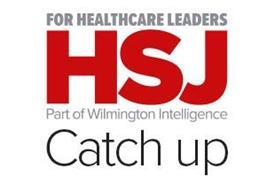


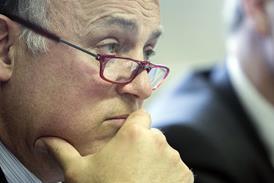
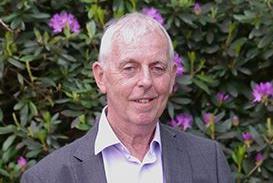
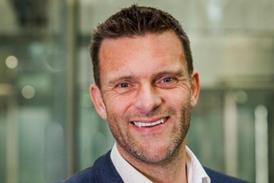

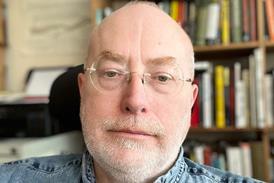











No comments yet